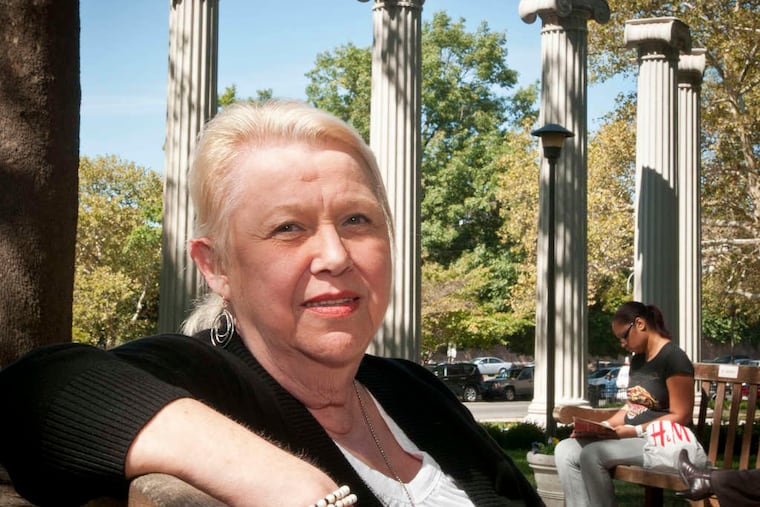At Einstein, an 'engaged workforce'
Hobson "Hop" Gross, 78, has come to the age where, once in a while, he thinks about death. "Death is going to have to catch me," he said, "and I ain't setting home waiting for it."

Hobson "Hop" Gross, 78, has come to the age where, once in a while, he thinks about death.
"Death is going to have to catch me," he said, "and I ain't setting home waiting for it."
More likely, Gross will be where he usually is, at his lab bench at Einstein Medical Center on Broad Street in Philadelphia. "As long as I have my health and strength, I want to keep working," he said.
Why change after 55 years?
Gross started as an elevator operator at Einstein's southern division in 1959, when the minimum wage was a dollar and a gallon of gas was a quarter. A lab technician, Gross is the Einstein Healthcare Network's longest-serving employee among 9,000, but there are eight others who have been on the job for more than half a century.
Kathleen Davis, an assistant professor of human resources at Temple University, isn't surprised. Before she joined Temple, she worked in the field of human resources in the Philadelphia area and got to know human resources managers at Einstein.
"Einstein has worked hard to build an engaged workforce," she said.
Why stay so long?
To a certain extent, that's the trend. Whether they remain employed by the same company, workers are staying on the job longer. In 1987, 4.3 percent of the workforce was older than 65. In 2012, the figure rose to 7 percent, while the percentage of workers aged 25 to 54 declined, according to an analysis of census data by the Employee Benefit Research Institute in Washington.
Even though the majority of workers still expect to retire at age 65, each year the percentage of employees planning to hang on longer increases, according to the institute.
The main reason employees postpone retirement, the institute said, is the economy - workers simply can't afford to quit. Employment situations change, health-care crises loom, and children or grandchildren still need support.
But something else seems to be at work at Einstein, where, in addition to the nine who have worked 50-plus years, there are 31 clocking in 45 years.
None of the three 50-years-plus workers interviewed for this article mentioned money; all described the hospital as a family that provided years of good times along with support in times of trouble.
When Gross' wife died, "people kept bringing me stuff," he said. It was a long time before Gross, of Mount Airy, had to cook any food for himself.
Wanda Costanzo, of Northeast Philadelphia, was right out of high school when she started as a filing clerk in 1962, 52 years ago. Costanzo, who works in physician billing, remembers when the hospital had a big Jewish workforce and when everyone traded working holidays so people could enjoy time with their families.
If Jewish holidays fell on a weekend, the Christian workers volunteered to come in to make sure shifts were covered. And on Christmas, the Jewish employees handled all the jobs, even if that meant a secretary was delivering meal trays to patients.
When Sharon Sharov, 74, started working in the pathology lab 50 years ago, pathologist Irving Young was her boss and his wife, Geraldine Young, also a doctor, was a colleague. Now their daughter, Dr. Nancy Young, is her boss.
But Gross, Costanzo, and Sharov also said that the family feeling wasn't as strong as it once was.
"We used to help each other out," Gross said. "Now everybody's busy. Now you work from the time you get in - if people get laid off or leave, we just deal with what we have."
A. Susan Bernini, Einstein's chief operating officer, a nurse by training and a 44-year employee, said the hospital values long-term employees such as Gross, and like him, she can relate to his assessment of the current situation.
"That's the challenge right now," she said. "Insurance companies don't want to pay for care. We're caring for our patients the same way, but we're just getting paid millions of dollars less.
"Our employees have to work harder with less," she said.
"Health care isn't for the faint of heart."
Nor is retirement.
Sharov, Gross, and Costanzo don't have any plans to retire soon, but Costanzo's husband is pressuring her to join him at home. "He says I don't want to retire," she said. (And he may be right.)
"I think about retirement," Sharov said. "But I love my job. I don't know what I'd do at home."
All three say they find their jobs intellectually stimulating - Sharov and Gross admire the changes in science that make their lab work more precise.
All three also say they value the health system's mission and the example set by the doctors who work there. All said they'd come to Einstein if they needed care.
Gross said he's always aware of the importance of his work. "We're here to help the patient get better. The quicker we can get the results back, the quicker the doctors can help the patients."
Katherine Nelson, another Temple University professor in human resources, said that as long as aging employees keep up with technology, administrators value the institutional knowledge long-term employees contribute.
"It's like having the Encyclopaedia Britannica sitting on your desk. They know what's been tried in the past and what has worked and what has not," she said.
As for the employees themselves, Nelson said, "if they are healthy enough to work and they are still interested and there's no burning reason to leave the workplace, that's nirvana."